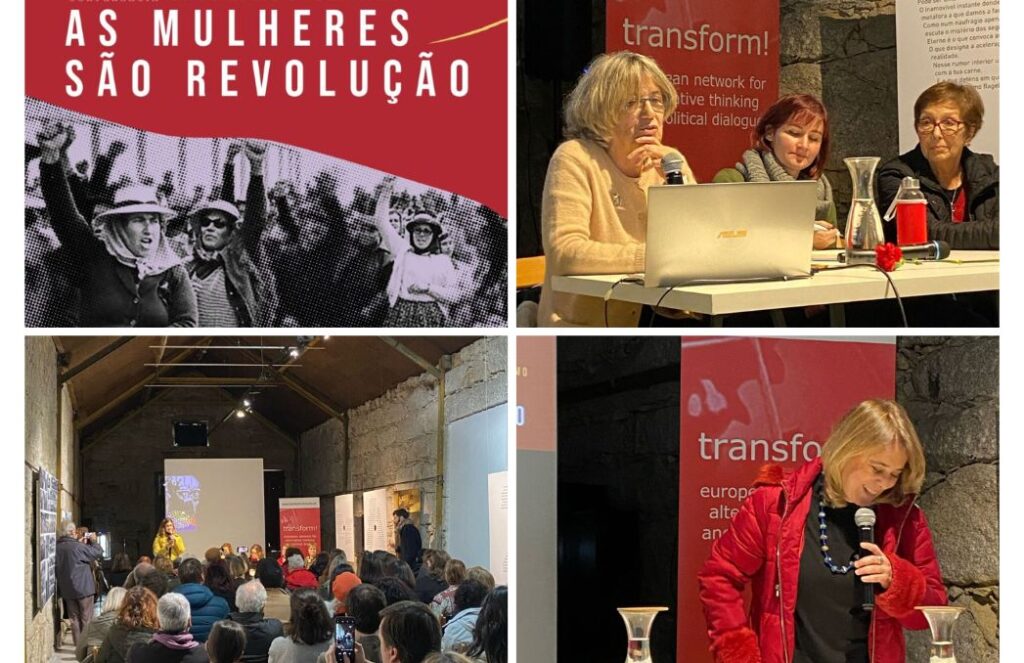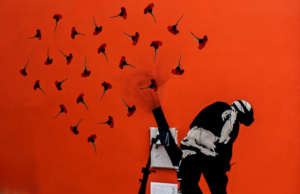On the eve of the 17th anniversary of the referendum that established free and safe abortion in Portugal and in the year marking the 50th anniversary of the Carnation Revolution, feminist academics, trade unionists, activists, and journalists came together for a conference involving dozens of people. For a whole day, it was possible to remember and discuss the struggles, legacies, achievements, and setbacks in women’s rights over the last fifty years.
With the confidence of those who know that ‘freedom is a constant struggle’ and the future is ours to conquer, the conference called for changes to the abortion law and for a National Care Service to further strengthen women’s rights in Portugal.
Read the detailed report from the conference by Catarina Martins, former coordinator of Portugal’s left party Bloco de Esquerda (BE):
In the runup to 8 of March and on the 50th anniversary of the Carnation revolution, transform! europe and ‘April is Now’ (Abril é Agora) organised the conference ‘April and Feminism: The Women are Revolution’ in collaboration with activists from multiple local feminist organisations, with the support of Mira Forum, a well-known progressive cultural institution in Oporto, and the participation of the feminist activist and MEP Malin Bjork from Sweden.
This conference had been planned before the Portuguese political crisis that led to snap national elections. With the electoral campaign only some weeks ahead, this encounter played a new role in uniting left-wing feminists in the fight against the far right and in articulating a strong feminist agenda for the elections. It was held on 10 February, one day before the 17th anniversary of the referendum that gave Portuguese women the right to legal and safe abortion, and one month before election day. The conference celebrated the Carnation Revolution, focusing on the role of women during the Revolution but also on the enduring obstacles to ensuring women’s sexual and reproductive rights.
The speakers were women of different origins and generations. There were revolutionaries from the 70s, academics and journalists with a feminist agenda, and medical doctors that are abortion-rights activists. It was a day of celebration and debate, organised around three panels whose themes were: the days of the revolution, the revolution that never took place, and today’s struggle for sexual and reproductive rights. Readings of texts from the revolutionary kicked off each debate.
At the opening, Manuela Monteiro, from Mira Forum, paid tribute to GAMP (Oporto Women’s Group, active from the late 70s to the early 80s of the last century) and focused on the importance of culture in the feminist movement. April Is Now welcomed the audience and the invited speakers and paid tribute to the revolutionary movement and its popular strength. Celebrating the Revolution’s 50th anniversary is not about the past; rather, it is a process of learning from that popular transformation in order to strengthen democracy and respond to today’s crisis.
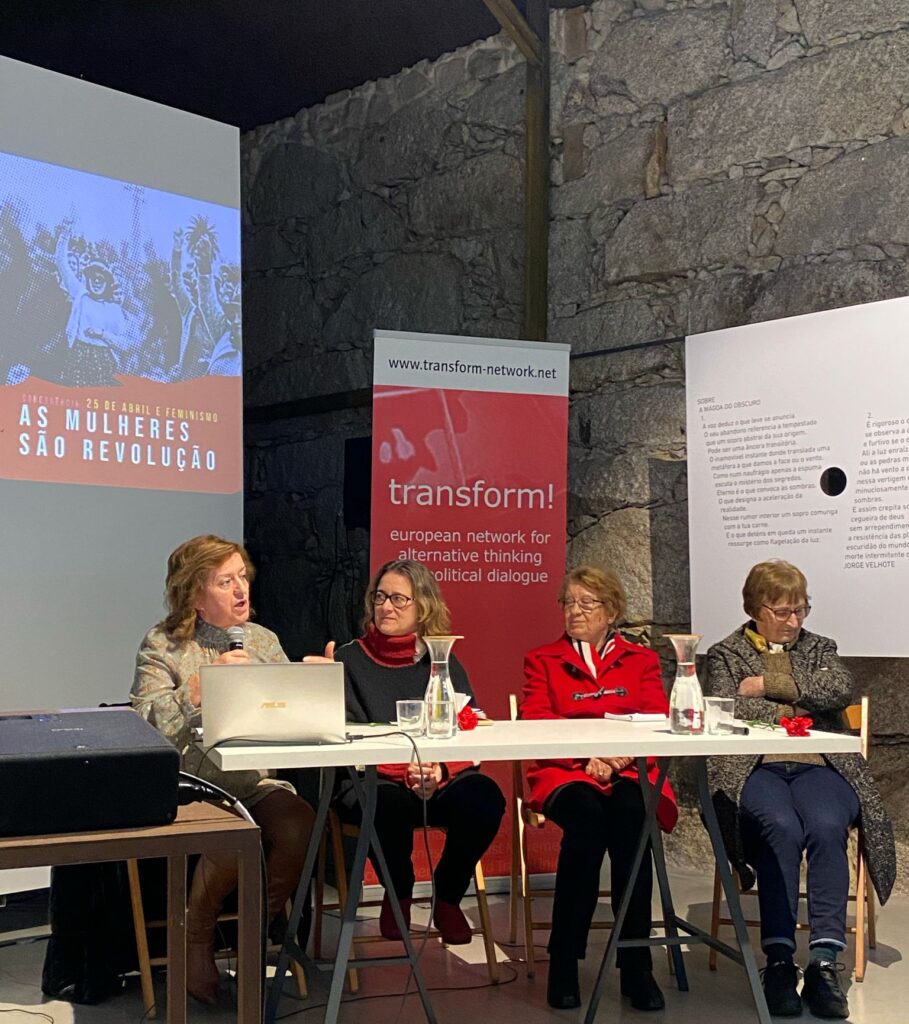
The first panel, dealing with the role of women during the revolution, was moderated by the journalist Sofia Branco (former president of the journalist’s union). Luísa Marques, from the textile union and the Portuguese workers confederation (CGTP), began by explaining the role of women in the union movement. She was followed by Conceição Ramos, founder of the first union of domestic workers, who talked about the trajectory of these workers, as children who moved from the rural areas to the cities to serve as maids, and the terrible working conditions they faced. She pointed out that the movement for domestic workers rights’ started before the revolution, that it was ignored during the revolution, and discussed how the other unions viewed the struggle. Esmeralda Mateus closed the panel remembering the life in the slums of Oporto before and after the revolution, the extreme poverty, and the rebellion she led to demand housing for all. Finally, there was discussion of today’s poverty and how it mainly affects women. Women still face disproportionately low wages, long hours, and lack of social support.
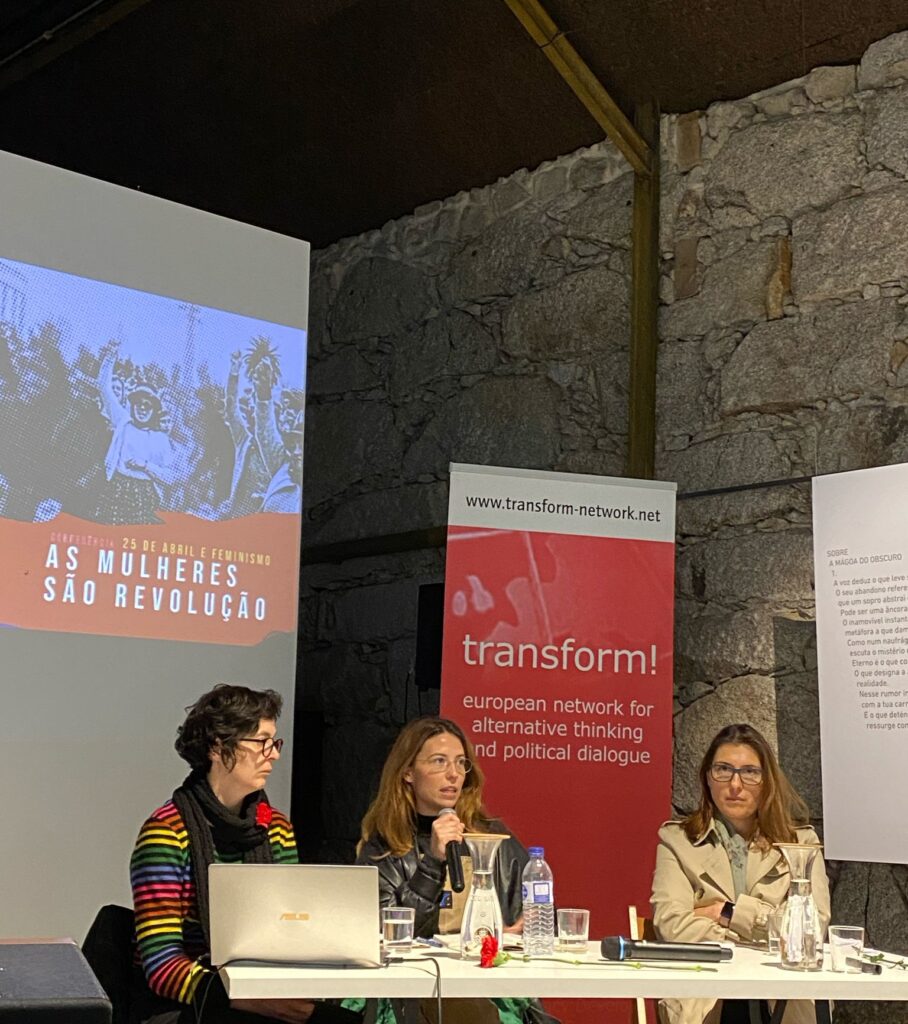
The second panel, addressing the revolution that never took place, was moderated by Mafalda Araújo, researcher in sociology, with two opening interventions. Andrea Peniche, editor, and feminist activist, explained how reproductive and care work put forward the idea of a new branch of the social state: a National Care Service that would combine different public services to respond to the needs of toddlers, elders, and people with disabilities. Marisa Matias, researcher in the Faculty of Psychology and Education Sciences at Oporto University, presented early data of a study about the prevalence and consequences of remote work. With the pandemic, remote work became more common, especially among women who find it facilitates the combination of work, household, and childcare. The consequences for women are serious: more working hours, less rest, and the danger of isolation. The debate that followed the presentation focused on the problem of remote work as a new way to remove women from work and public spaces.
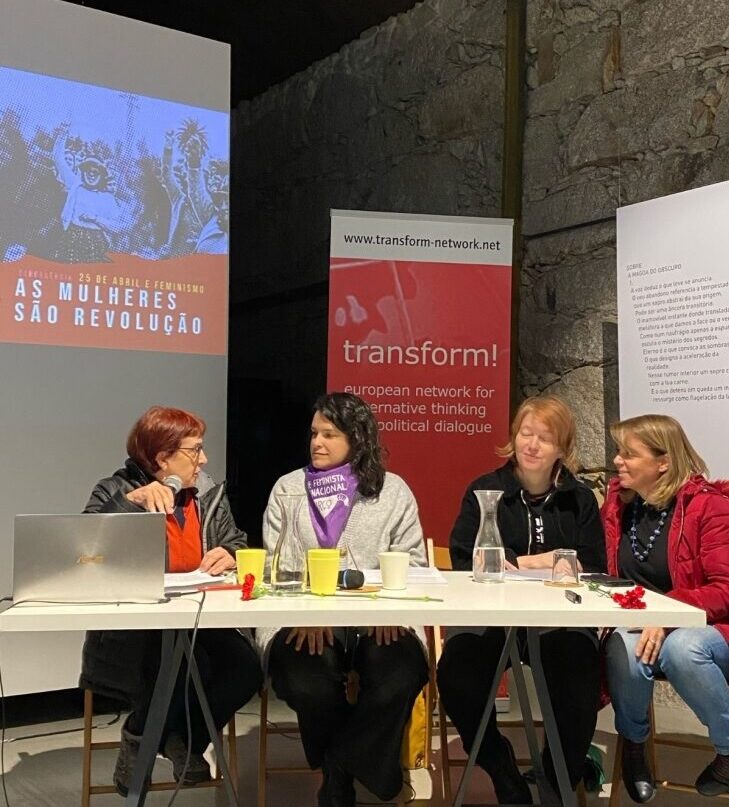
The third and last panel, moderated by the journalist Aline Frazão, was presented by two obstetrician-gynaecologists with a history of activism for women’s sexual and reproductive rights: Maria José Alves and Ana Campos. In the panel, tribute was paid to the MLM (Movement of the Liberation of Women, founded immediately after the Revolution) and its pioneering activism for abortion rights in Portugal. It also paid tribute to Purificação Araújo, another obstetrician-gynaecologist who played a central role in organising medical assistance in labour, abortion, and other women’s sexual and reproductive healthcare services.
Maria José Alves and Ana Campos led a panel on the evolution of women’s sexual and reproductive rights over the last 50 years in Portugal, the victory of the right to safe and legal abortion in the 2007 referendum, and today’s obstacles within the national healthcare service.
The final interventions focused on abortion rights. In Portugal, abortion has been legal since the 2007 referendum, but access to it in the national healthcare service is increasingly difficult. The problems of lack of doctors, the institutional misuse of the doctors’ right to conscientious objection, legal obstacles, and shortages must be solved. Alda Sousa, feminist activist and former MEP, and Ana Vasques, from the new generation of feminists organisations, stressed the urgent need to change the Portuguese law in the direction of more healthcare professionals in the National Health Service, requiring every healthcare institution to provide abortion care along with the care that precedes it, putting an end to the mandatory reflexion period, stressing the need for consultation with two different doctors, and extending legal abortion at women’s request from 10 to 12 weeks. These proposals had large support from the audience. Finally, Malin Bjork shared some of the experience of the fight for abortion rights across Europe and the role of the feminist movement in the struggle against the far right and for the establishment of stronger democracies which leave no one behind.
All 100 seats were occupied throughout the day, and the audience included leading figures from different feminist institutions and social movements. The lunch break became a moment of political intervention. It was at a local restaurant for working people, owned by a popular left-wing woman who saluted the conference with fado. The event was closed with another musical moment by two well-known musicians (João Loio and Regina Castro) who performed revolutionary and feminist songs.

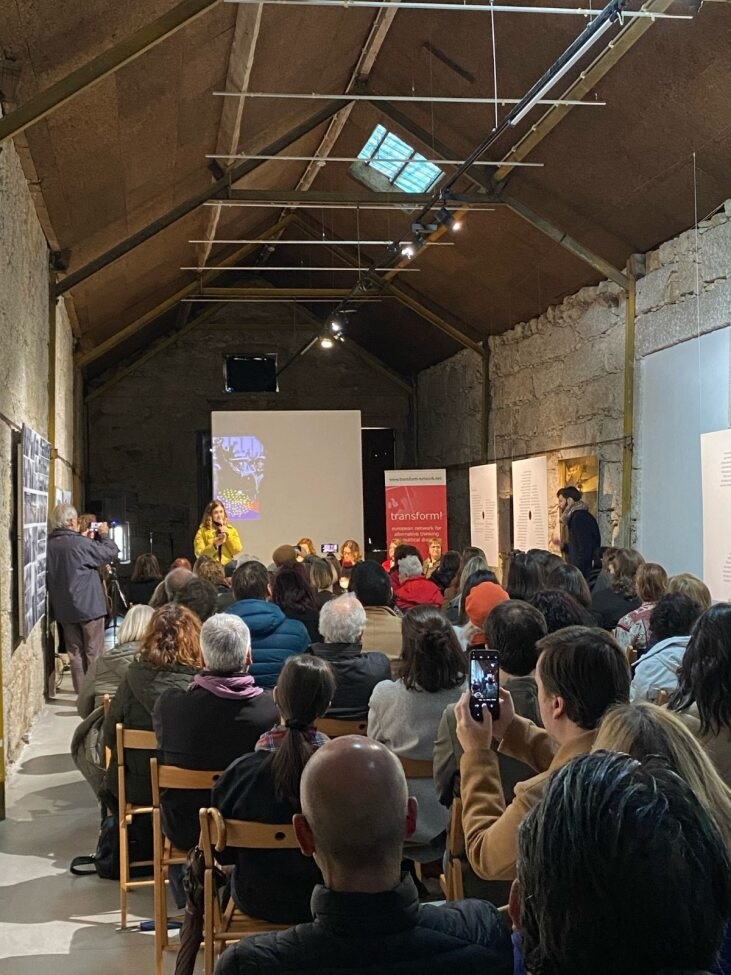
The conference allowed feminists of all ages, from teenagers to eighty- and ninety-year-olds, to share experiences, ideas, and projects. For the immediate future, it has helped deepen the common political platform for this year’s 8 March demonstrations: abortion rights and defeating the right.
